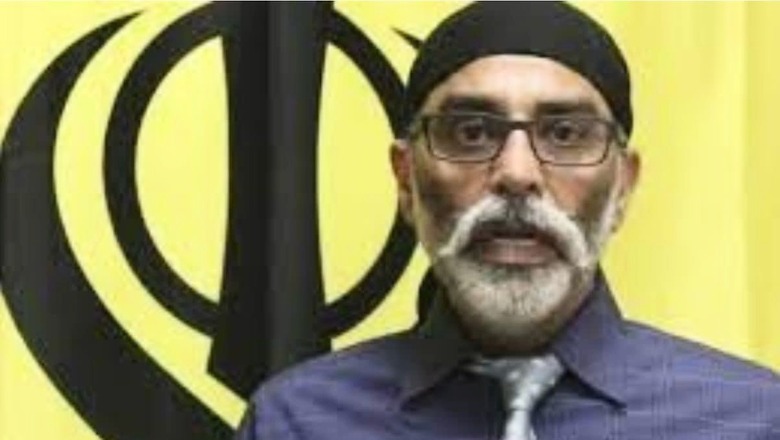
views
India on Wednesday said it takes inputs on security matters from the US seriously since they impinge on its own national security concerns as well. The ministry of external affairs said this in response to queries about a report in the British daily Financial Times, which stated that the US had thwarted an attempt to kill Sikh extremist Gurpatwant Singh Pannun on American soil.
“During the course of recent discussions on India-US security cooperation, the US side shared some inputs pertaining to nexus between organised criminals, gun runners, terrorists and others,” said ministry spokesperson Arindam Bagchi about discussions between India and US on security matters.
Bagchi said the inputs were a cause of concern for both countries and they decided to take necessary follow-up action. “On its part, India takes such inputs seriously since it impinges on our own national security interests as well,” he said.
The ministry official said issues in the context of US inputs are already being examined by relevant departments.
According to the report published by Financial Times, the US “thwarted a conspiracy to assassinate” Pannun on American soil and “issued a warning to India’s government over concerns it was involved in the plot”. The report cited multiple sources.
This comes two months after diplomatic relations between Indian and Canada nosedived when Prime Minister Justin Trudeau alleged that agents of the Indian government were involved in the June killing of Sikh extremist Hardeep Singh Nijjar in Vancouver. India had rejected the allegations as “absurd” and “motivated”.
But, on the contrary, this time India has said it takes the US inputs “seriously”.
According to the FT report, the US, Canada and allies shared details as part of being in the intelligence-sharing network ‘Five Eyes’. The Nijjar killing and the Pannun assassination plot has sparked concerns “about a possible pattern of behaviour” on Delhi’s part.
“Washington shared details of the Pannun case with a wider group of allies after Trudeau went public with details of the Vancouver killing, the combination of which sparked concern among allies about a possible pattern of behaviour,” the report stated.
It said the US protest was issued after Prime Minister Narendra Modi’s state visit to Washington in June. It was not clear “whether the protest to New Delhi led the plotters to abandon their plan, or whether the FBI intervened and foiled a scheme already in motion”.
Quoting sources, the report further stated that a sealed indictment has been filed in a New York district court against at least one alleged perpetrator in the plot. “The US justice department is debating whether to unseal the indictment and make the allegations public or wait until Canada finishes its investigation into Nijjar’s murder. Further complicating the case, one person charged in the indictment is believed to have left the US,” it said.
Pannun, who is a dual citizen of the US and Canada, is the self-proclaimed general counsel of “unlawful association” Sikhs for Justice (SFJ). He has been under the NIA’s lens since 2019, when the anti-terror agency registered its first case against him.
Earlier this week, the NIA registered a case against him and SFJ for issuing video messages threatening people flying Air India. The case has been filed under the Indian Penal Code (IPC) and the Unlawful Activities (Prevention) Act (UAPA).
Pannun was listed as an “individual terrorist” by the ministry of home affairs on July 1, 2020, a year after the Centre banned the SFJ.
Top intelligence sources in India have rubbished as “baseless” the Financial Times’ report on November 22, which, citing unnamed sources, alleged that the US authorities had thwarted a plot to kill a Sikh separatist in their country and reportedly issued a warning to India over concerns that the government was involved. At the time of publishing this report, the foreign ministry and the U.S. embassy in New Delhi had not issued a statement.
Top intelligence sources in India, however, have rubbished the Financial Times report as “baseless”.
(With PTI inputs)
















Comments
0 comment